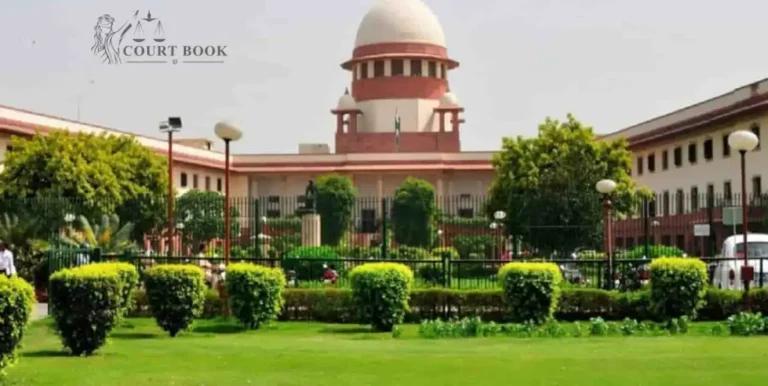In a significant ruling that revisits a 37-year-old feud over farmland boundaries, the Supreme Court on Tuesday dismissed the appeals of six men convicted in a 1988 double murder case from Muzaffarnagar, Uttar Pradesh (now Uttarakhand). The top court upheld their life sentences, observing that the crime was not an act of sudden rage but a deliberate assault rooted in long-standing enmity.
“The appellants acted with clear intention to eliminate the victims,” the bench of Justices Sanjay Karol and Prashant Kumar Mishra remarked while pronouncing the verdict on October 28, 2025.
Read also:- Supreme Court rules preference shareholders not financial creditors under Insolvency Code
Background
The case dates back to May 19, 1988, when two related families clashed violently over a mendh (ridge) separating their sugarcane fields. According to police records, the dispute escalated when accused Molhar and Dharamvir damaged the boundary, prompting protests from Dile Ram and Braham Singh, who were later found dead with deep head injuries.
Two conflicting FIRs were lodged one from each side but after separate trials, the accused Om Pal, Narendra, Ranvir, Dharamvir, Kantu, and Inchha Ram were convicted under Sections 302 and 307 of the IPC for murder and attempt to murder. They were sentenced to life imprisonment and fined ₹10,000 each by the Sessions Court in 1992, a decision later upheld by the Uttarakhand High Court in 2010.
Read also:- Calcutta High Court Quashes Multiple FIRs Against Suvendu Adhikari, Calls Them "Politically Motivated
The accused then approached the Supreme Court, arguing that it was a free fight where both sides sustained injuries and that the deaths occurred in the heat of the moment, not out of premeditation.
Court’s Observations
Rejecting the defense, the apex court emphasized that the appellants were “the aggressors, not the victims.” The bench noted that the use of sharp weapons like spades and phawaras on vital parts of the body demonstrated clear intent to kill.
“The nature of the injuries deep incised wounds on the head leaves no doubt that the blows were delivered with full knowledge of their fatal consequence,” the judgment observed.
Read also:- Supreme Court Deletes Adverse Remarks and Fine Against Uttarakhand State Election Commission
The Court dismissed the argument that the fight was sudden or unplanned, clarifying that the fourth exception to Section 300 IPC, which reduces culpability from murder to culpable homicide, did not apply.
On the delay of three days in filing the second FIR, the Court accepted the complainant’s explanation that the family was occupied in taking the injured victims to the hospital. “A reasonable and natural delay cannot nullify a genuine case,” the bench noted.
Citing past precedents, the judges reiterated that ocular testimony, especially from injured eyewitnesses, carries strong evidentiary value. “An injured witness seldom has reason to falsely implicate someone while letting the real culprits go,” the Court remarked, backing the accounts of survivor Bangal Singh and other witnesses.
The Court also brushed aside the defense’s claim of non-recovery of weapons, stating that when medical and eyewitness evidence align, such technical lapses cannot weaken the prosecution’s case.
Decision
Concluding that the attack was a planned act of retribution arising from old land disputes, the Supreme Court affirmed the life sentences awarded by the trial and high courts.
“All six appellants shall surrender forthwith. Their bail bonds stand cancelled,” the bench ordered, directing the trial court to ensure immediate custody.
However, the Court left open the possibility for remission, allowing the convicts to seek reduction of sentence as per state policy.
Case Title: Om Pal & Others vs. State of Uttar Pradesh (now State of Uttarakhand)
Case Type: Criminal Appeal No. 1624 of 2011 (with connected appeals)
Citation: 2025 INSC 1262
Court: Supreme Court of India
Bench: Justices Sanjay Karol and Prashant Kumar Mishra
Judgment Date: October 28, 2025














